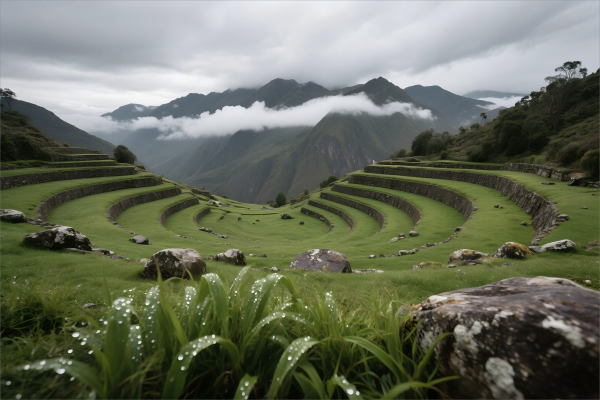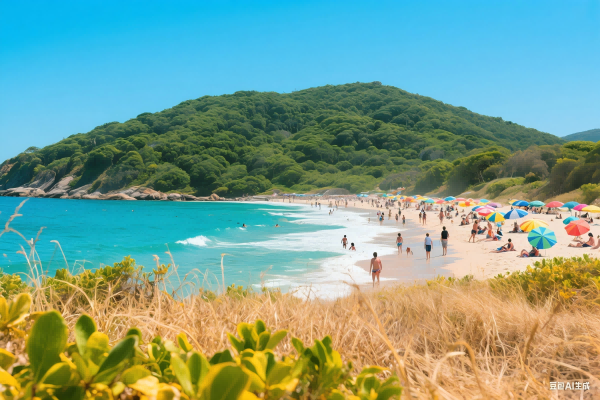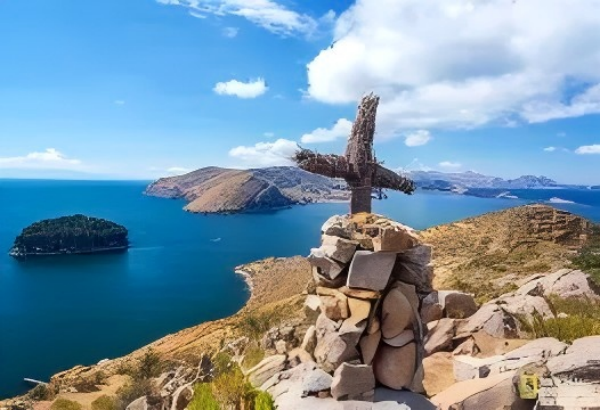As Peru’s leading tourism development consultant with over 15 years of experience in heritage site management and coastal tourism planning, I’m reaching out to fellow travel professionals, local communities, and cultural enthusiasts for your valuable insights on developing the playa inca concept. This innovative tourism initiative aims to create a unique coastal experience that honors Inca heritage while providing world-class beach amenities.
The Vision Behind Playa Inca
Our playa inca project represents an ambitious fusion of Peru’s magnificent coastline with its rich Inca cultural legacy. 🌊 After extensive research and consultation with archaeological experts, we believe this concept could revolutionize Peru’s tourism landscape by offering visitors an unprecedented combination of beach relaxation and cultural immersion.
Theplaya inca development would strategically connect coastal experiences with established Inca heritage sites, creating a comprehensive tourism circuit. We envision visitors starting their journey on pristine beaches, then transitioning seamlessly to explore the sacred valley of the incas and culminating with the iconic machu picchu cara del inca formations.

Current Development Challenges We Need Your Input On:
- Infrastructure Integration: How can we best connect playa inca with existing inca rail services?
- Cultural Sensitivity: What measures ensure respectful representation of Inca heritage?
- Environmental Impact: How can we minimize ecological footprint while maximizing visitor experience?
- Community Involvement: What role should local communities play in playa inca operations?
Proposed Site Locations and Your Feedback
We’ve identified several potential locations for playa inca development, each offering unique advantages and challenges. Your expertise in evaluating these options would be invaluable.
Table 1: Proposed Playa Inca Development Sites
| Location | Distance to Cusco | Cultural Sites Nearby | Beach Quality | Infrastructure Level |
|---|---|---|---|---|
| Paracas Bay | 450 km | Nazca Lines, Inca ruins | Excellent | High |
| Máncora Coast | 1,200 km | Northern Inca sites | Outstanding | Medium |
| Chincha Beaches | 380 km | Inca administrative centers | Good | Medium |
| Lima South Coast | 350 km | Pachacamac¹ ruins | Very Good | High |
Question for stakeholders: Which location do you believe offers the best balance of accessibility, cultural authenticity, and development potential for playa inca? 🏖️

Integrating Transportation and Cultural Circuits
One of our primary concerns involves seamlessly connecting playa inca with Peru’s established cultural tourism infrastructure. The inca rail system currently serves the valle sagrado de los inca exceptionally well, but extending this connectivity to coastal areas presents logistical challenges.
We’re particularly interested in your thoughts on creating a comprehensive transportation network that would allow visitors to experience:
• Playa inca coastal relaxation and water activities • Inca trail trekking adventures through mountain terrain
• Valle sagrado de los inca archaeological exploration • Laguna del inca high-altitude lake experiences
Your input needed: What transportation solutions would you recommend for connecting these diverse geographical areas while maintaining service quality and environmental responsibility?
Culinary Experiences and Cultural Authenticity
The playa inca concept includes developing specialized restaurantes inca that blend traditional Andean cuisine with coastal ingredients. 🍽️ We’re seeking advice from culinary professionals and cultural experts on creating authentic dining experiences that honor Inca culinary traditions while appealing to international palates.
Table 2: Proposed Playa Inca Culinary Offerings
| Dish Category | Traditional Base | Coastal Adaptation | Cultural Significance |
|---|---|---|---|
| Ceviches | Fresh fish | Inca spice blends | Coastal-highland fusion |
| Quinoa Preparations | Andean grain | Seafood combinations | Sacred grain tradition |
| Pachamanca² | Earth oven cooking | Beach-side preparation | Community ritual |
| Chicha Varieties | Corn beverages | Tropical fruit infusions | Ceremonial drinks |
We’re particularly interested in your perspectives on maintaining cultural authenticity while creating innovative culinary experiences at our restaurantes inca locations.
Environmental Stewardship and Sustainable Development
The playa inca project must exemplify sustainable tourism practices that protect both coastal ecosystems and cultural heritage sites. 🌱 We’re seeking recommendations from environmental consultants, marine biologists, and sustainability experts on best practices for responsible development.
Key environmental considerations include:
- Marine ecosystem protection around inca beach areas
- Waste management systems for high-volume tourism
- Water conservation in coastal desert environments
- Carbon footprint reduction through renewable energy integration
Question for environmental experts: What innovative sustainability measures have you seen successfully implemented in similar coastal cultural tourism projects?
Community Integration and Economic Impact
Local community involvement is crucial for playa inca success. We’re soliciting input from community development specialists and local leaders on creating equitable economic opportunities. The project should benefit communities near puerto inca and other coastal areas while respecting traditional lifestyles.
Table 3: Proposed Community Benefits from Playa Inca Development
| Benefit Category | Direct Impact | Indirect Impact | Measurement Metrics |
|---|---|---|---|
| Employment | 300+ direct jobs | 800+ indirect jobs | Job creation tracking |
| Skills Development | Hospitality training | Entrepreneurship support | Certification programs |
| Cultural Preservation | Heritage documentation | Traditional craft promotion | Cultural activity indices |
| Infrastructure | Road improvements | Utility upgrades | Community facility access |
Community leader input requested: What specific provisions should we include to ensure playa inca development genuinely benefits local populations rather than displacing them?
Technology Integration and Modern Amenities
Balancing modern convenience with cultural authenticity requires careful consideration. 📱 We’re exploring how to integrate contemporary amenities and technology at playa inca without compromising the spiritual and cultural atmosphere that defines Inca heritage sites.
Proposed technology integrations include:
• Augmented reality experiences showing historical Inca coastal activities • Mobile applications for cultural education and site navigation • Sustainable energy systems powering modern facilities • Water purification technology ensuring safe drinking water
Tech industry input needed: What emerging technologies could enhance visitor experience while maintaining the contemplative atmosphere appropriate for cultural heritage sites?

Marketing and Positioning Strategy
We’re seeking marketing professionals’ insights on positioning playa inca within Peru’s competitive tourism market. The concept must differentiate itself from existing beach destinations while complementing rather than competing with established Inca heritage sites like the sacred valley of the incas.
Marketing challenge: How can we effectively communicate the unique value proposition of playa inca to international markets while maintaining cultural sensitivity and authenticity?
Timeline and Implementation Phases
Your input on realistic development timelines would be invaluable. We’re considering a phased approach beginning with pilot programs and gradually expanding to full playa inca operations.
Technical Definitions
¹ Pachacamac: Pre-Inca and Inca pilgrimage center south of Lima, considered sacred by multiple Andean cultures ² Pachamanca: Traditional Andean cooking method using heated stones buried in the earth
Frequently Asked Questions and Solutions
Q: How will Playa Inca development impact existing archaeological sites? A: Archaeological impact assessment is our top priority. We’re collaborating with Peru’s Ministry of Culture and international archaeological consultants to ensure zero negative impact on heritage sites. All development will occur in designated areas with appropriate buffer zones. We’re implementing ground-penetrating radar surveys and establishing archaeological monitoring protocols throughout construction phases. Additionally, we’re creating interpretive programs that actually enhance archaeological site protection through increased awareness and dedicated conservation funding from tourism revenues.
Q: What measures ensure authentic cultural representation rather than commercialized stereotypes? A: Authenticity is maintained through direct partnership with Quechua communities and certified cultural consultants. We’re establishing a Cultural Advisory Board comprising indigenous leaders, anthropologists, and heritage specialists who review all interpretive content and cultural programs. Our staff training includes intensive cultural sensitivity education, and we’re implementing revenue-sharing agreements that directly support traditional community practices. Regular cultural audits and community feedback sessions ensure ongoing authenticity and respectful representation of Inca heritage.
Authoritative References
- Ministry of Culture of Peru. Guidelines for Cultural Heritage Tourism Development. https://www.gob.pe/cultura
- UNESCO World Heritage Centre. Sustainable Tourism Development in Cultural Landscapes. https://whc.unesco.org/
- National Geographic Society. Best Practices for Heritage Tourism. https://www.nationalgeographic.org/
- Inter-American Development Bank. Sustainable Coastal Tourism Development. https://www.iadb.org/
- World Tourism Organization. Cultural Tourism Development Guidelines. https://www.unwto.org/